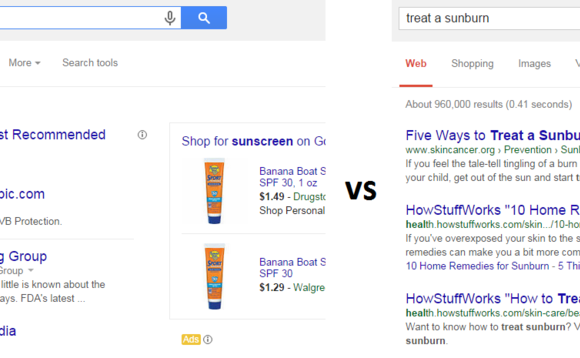SEO and PPC Need to Stop Being Enemies
If SEO and PPC worked together, marketers could do their jobs much better - and make a lot more money for their companies.
If SEO and PPC worked together, marketers could do their jobs much better - and make a lot more money for their companies.
There, I said it. I’m willing to put down my battle ax if you’re willing to cease fire.
For as long as there have been search engines, there have been two views of the best way to own them. Paying vs. earning. Bidding vs. optimizing. PPC vs. SEO.
You don’t play for both teams, and rarely is there crossover of leaving one discipline for the other. There’s as much tension between them as Florida Gator fans and Urban Meyer, which is downright frustrating given how well they could work together.
But I get it.
About this time in the year, people start thinking about budgets for the upcoming year, and wherever there are two competing marketing tactics, one will inevitably get shafted and the other will inevitably be bitter about it.
Still, you don’t see this type of rivalry between affiliate and email or PR and social — or maybe you do; I don’t know. Either way, the tension is especially thick between SEO and PPC. Maybe it’s because of budgets. Maybe it’s because they’re so tightly aligned and often get grouped under the blanket “SEM.” Maybe it’s because Google AdWords keep taking up more and more real estate in the SERPs.
Whatever it is, no matter what side of the fence you’re on, we forget we’re all working toward one common goal: to make money. Regardless if traffic or conversion rate are your key metrics, your job as a marketer is to make your company money, and we can make a lot more of it if SEO and PPC start playing nicely.
Part of the problem may be because we’re comparing SEO to PPC on a 1-to-1 ratio: If SEO isn’t working, just move everything to PPC and vice versa. But what happens when you do that is that you’re misallocating the budget to two different parts of a customer engagement.

SEO is a top-of-the-funnel marketing tactic. People do often buy when they enter your site organically, but primarily it’s a research-driven action. Conversion rates are low. They’re seeing what’s out there. They might just be starting their research process. They probably come back a few times before determining they’re ready to move forward.
In fact, PWC found in their annual multi-channel shopping survey that 88 percent of U.S. respondents first research online before buying a product. So remember, they could research online and buy in store, but SEO wouldn’t be created for that conversion, and they would never buy online if you’re not first there when they look online.
On the other hand, PPC targets consumers who are further down your marketing funnel and thus further along in the buying process. Conversion rates will be higher. People are more likely to take an action. They’re action-based searches rather than research-based searches, which is exactly the reason why you find few PPC ads for informational queries.

Replacing PPC with SEO won’t necessarily bring you more results or even better results because you’re using budget to target an entirely different type of consumer.
Since Google switched to secure search and we lost our keyword data, the next most reliable way for SEOs to know which keywords to target comes from PPC.
While you can get traffic data from tools like Keyword Planner or SEMRush and impressions and click-through rate (CTR) from Google Webmaster Tools, PPC teams have access to an even more valuable metric when it comes to determine how profitable a keyword is for you: conversion rate.
Armed with that information, SEOs now know not only what keyword drives the most traffic but what keyword could potentially drive the most revenue.
If you’re not creating PPC-specific landing pages, you’ll likely be using the same landing pages from SEO, which can tell you a lot in terms of how popular a page is, conversion rate, and revenue. The work the SEO team did on the landing page will also boost your PPC Quality Score, driving down your overall cost per click (CPC).
Secondly, both PPC and SEO can benefit from knowing what customers actually considered quality content. A PPC campaign can let you test which content works best for your users very quickly, which you can then migrate into your SEO strategy, and vice versa if you’re setting up PPC to supplement your SEO.
Thanks to the multi-channel funnel report in Google Analytics, we now have a better way of giving credit to each channel involved in a customer’s purchasing decision.
How else have you used PPC and SEO together in order to drive more revenue?